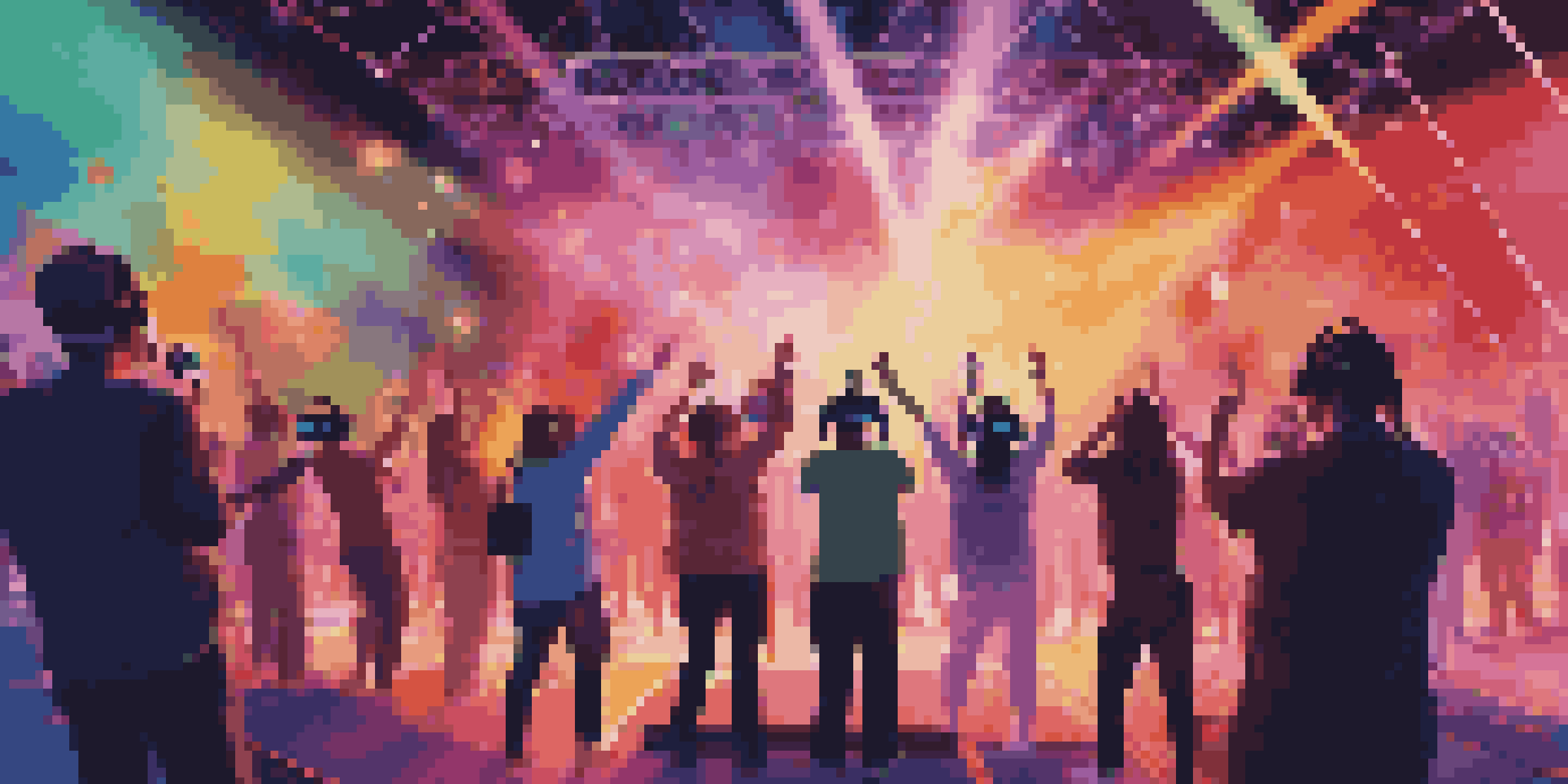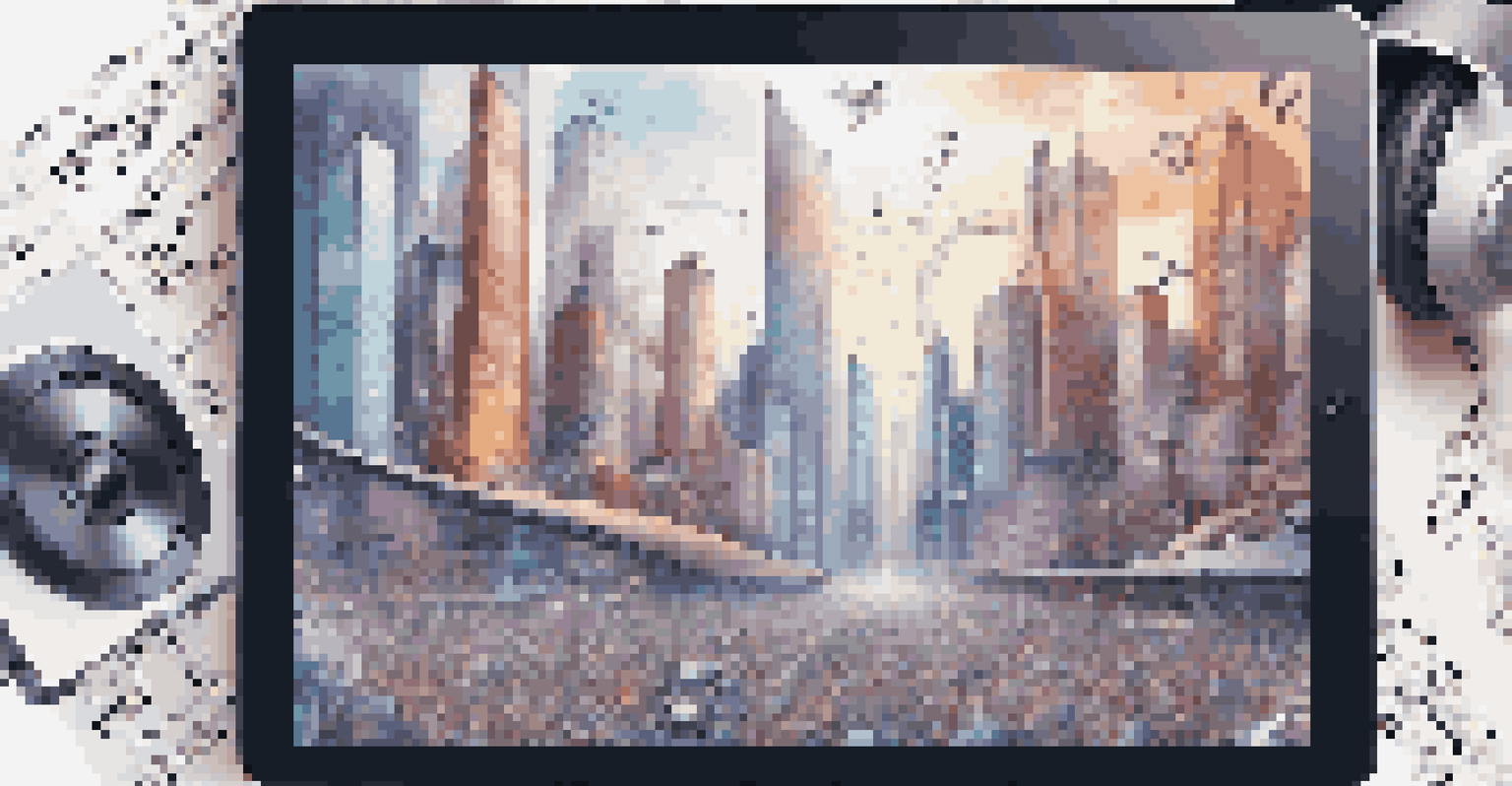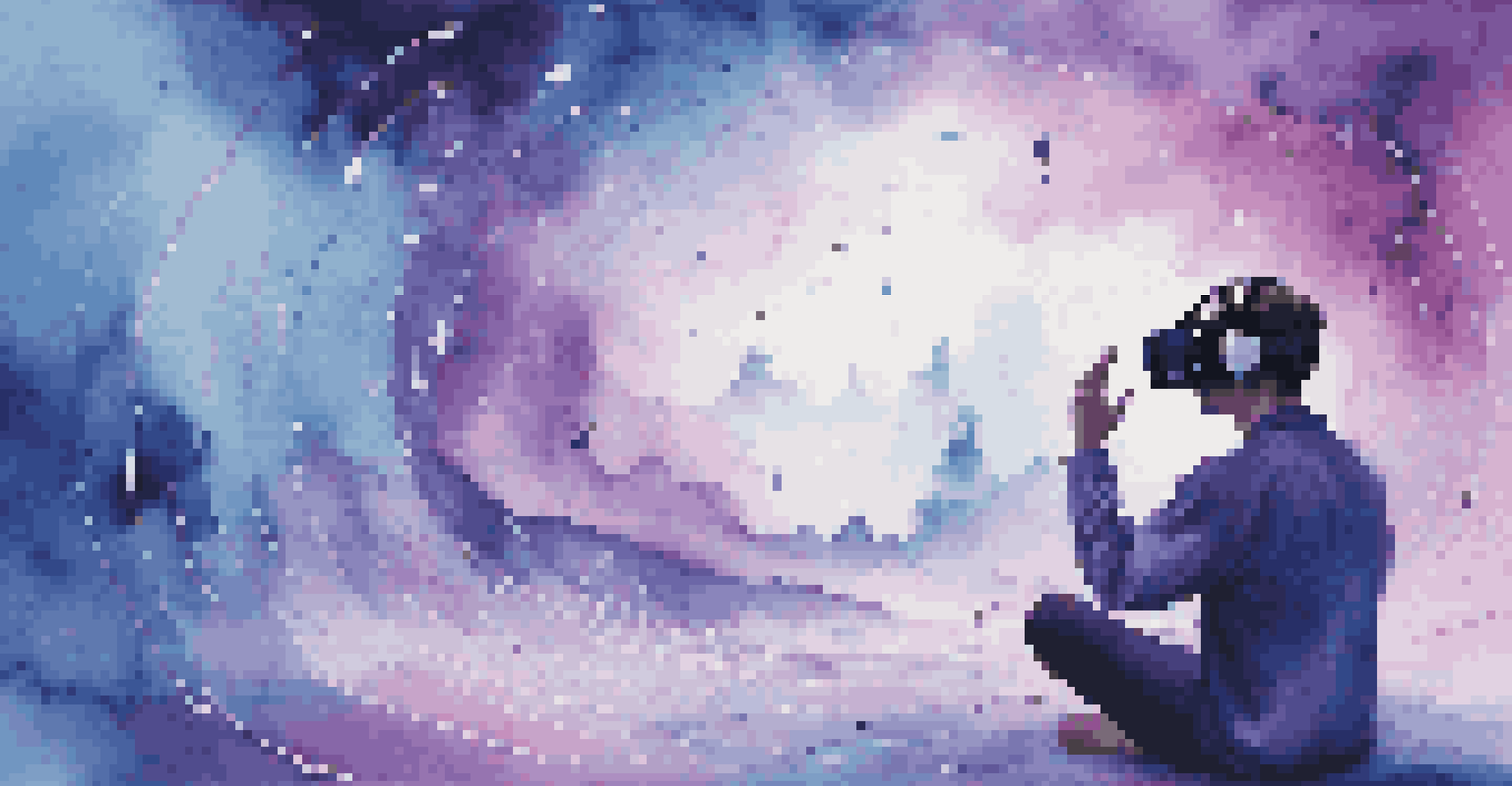The Role of Virtual Reality in Music Licensing and Rights

Understanding Music Licensing and Virtual Reality
Music licensing involves securing the legal rights to use music in various formats, which is crucial for artists and businesses alike. As virtual reality (VR) continues to evolve, it brings new dimensions to how music can be experienced and utilized. The intersection of VR and music licensing is becoming increasingly relevant, as immersive experiences require unique licensing considerations.
Music is the shorthand of emotion.
In a VR environment, users can interact with music in ways that traditional media can't match. This shift necessitates a clear understanding of how music can be used within these digital spaces, making licensing more complex yet more vital. With VR experiences, the potential for creative storytelling through music is boundless, but it also raises questions about ownership and rights.
As we dive deeper into this topic, we'll explore how VR technology reshapes the landscape of music licensing, offering both opportunities and challenges for artists, producers, and rights holders. Understanding these dynamics is essential for anyone involved in the music industry today.
The Unique Challenges of Licensing in Virtual Reality
One of the significant challenges of music licensing in VR is the nature of immersive experiences, which often blur the lines between usage types. For instance, a song played in a virtual concert setting might be licensed differently than one used in a gaming scenario. These nuances can create confusion and complicate the licensing process for creators and developers.

Furthermore, the interactive nature of VR means that users can influence how music is experienced, raising questions about who holds the rights to those adaptations. For example, if a user remixes a track within a VR platform, determining the original artist's compensation and rights becomes a complex issue. This underscores the need for clear guidelines and contracts that address such scenarios.
Complexities of VR Music Licensing
Music licensing in virtual reality presents unique challenges due to the interactive nature of immersive experiences.
As the popularity of VR grows, so does the necessity for artists and rights holders to stay informed and adaptable. Developing a comprehensive understanding of these challenges is crucial for navigating the evolving landscape of music licensing in virtual environments.
The Impact of Streaming Services on VR Music Licensing
Streaming services have revolutionized how we consume music, and their influence extends into the realm of virtual reality. Many VR platforms are now integrating music streaming functionalities, allowing users to access vast libraries of songs seamlessly. However, this raises important licensing questions regarding how these tracks are used in immersive experiences.
Technology is best when it brings people together.
For example, when a user listens to a playlist while in a VR game, the licensing agreements for those songs must account for this new usage context. This situation necessitates collaboration between streaming services, rights holders, and VR developers to ensure all parties are fairly compensated. As a result, creating adaptable licensing frameworks becomes essential for the industry's growth.
The interplay between streaming services and VR technologies illustrates the need for innovative approaches to music licensing that reflect the realities of digital consumption. Understanding these relationships is vital for anyone looking to thrive in the modern music industry.
How VR Enhances Audience Engagement with Music
Virtual reality has the power to transform how audiences engage with music, creating immersive environments that foster deeper connections. For instance, VR concerts allow fans to experience live performances from the comfort of their homes, making music more accessible than ever. This engagement can lead to increased interest in artists and their work, creating new opportunities for licensing.
As audiences immerse themselves in these virtual experiences, the potential for branded content and partnerships also grows. Companies can collaborate with artists to create unique VR experiences that engage fans while ensuring that music is licensed appropriately. These partnerships can lead to innovative marketing strategies that benefit both artists and brands alike.
Streaming Services Influence VR
The integration of streaming services into VR raises important licensing questions that require collaboration among all parties involved.
Ultimately, the ability of VR to enhance audience engagement presents exciting opportunities for the music industry. By leveraging these technologies, artists can reach new audiences and create meaningful experiences, all while navigating the complexities of licensing.
Artist Rights and Revenue Streams in VR
In the realm of virtual reality, artists must navigate new avenues for revenue while protecting their rights. With immersive experiences becoming more popular, artists have the chance to monetize their work through virtual concerts, exclusive content, and branded experiences. However, ensuring that these revenue streams are fairly distributed is essential for maintaining artist integrity.
As VR platforms evolve, so too do the terms of engagement for artists. Clear contracts that outline rights, royalties, and usage terms are crucial to ensure that artists reap the benefits of their work in these digital spaces. Without proper agreements, artists risk losing out on potential income and control over their creations.
By prioritizing artist rights and creating transparent revenue-sharing models, the music industry can harness the full potential of virtual reality. This approach not only empowers artists but also enriches the overall music experience for listeners.
The Future of Music Licensing in a VR World
Looking ahead, the future of music licensing in virtual reality is both exciting and uncertain. As technology continues to advance, we can expect to see increasingly sophisticated licensing frameworks that cater to the unique demands of VR. This evolution will require collaboration between artists, rights holders, and technology developers to create solutions that work for everyone involved.
Moreover, as more consumers embrace VR experiences, the demand for licensed music will only grow. This presents an opportunity for artists to explore new genres and styles that resonate with virtual audiences. By staying ahead of trends and adapting to change, artists can position themselves for success in this rapidly evolving landscape.
Artist Rights in VR Environments
As VR expands, artists must navigate new revenue streams and ensure their rights are protected through clear licensing agreements.
Ultimately, the future of music licensing in a VR world will be shaped by innovation and collaboration. Embracing these changes will be essential for artists and the music industry as a whole.
Conclusion: Embracing Change in Music Licensing and VR
The integration of virtual reality into music licensing processes represents a significant shift in how the industry operates. As we have explored throughout this article, the challenges and opportunities presented by VR require a proactive approach to licensing. Artists, rights holders, and platforms must work together to navigate this new terrain effectively.
Embracing change means being open to new ideas, technologies, and collaborations that can enhance the music experience. As VR continues to grow, so too will the need for innovative licensing solutions that prioritize both creativity and compensation for artists. This commitment to progress will ultimately lead to a more vibrant and sustainable music industry.

In conclusion, the role of virtual reality in music licensing is just beginning to unfold. By staying informed and adaptable, we can all contribute to a future where music and technology coexist harmoniously, creating rich experiences for audiences and fair opportunities for artists.